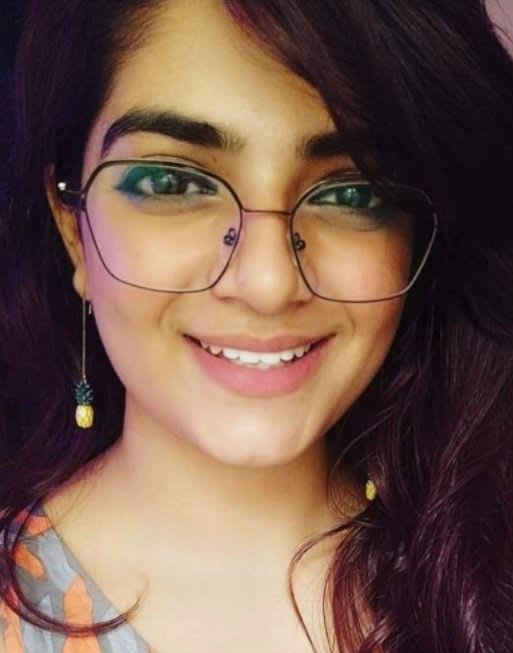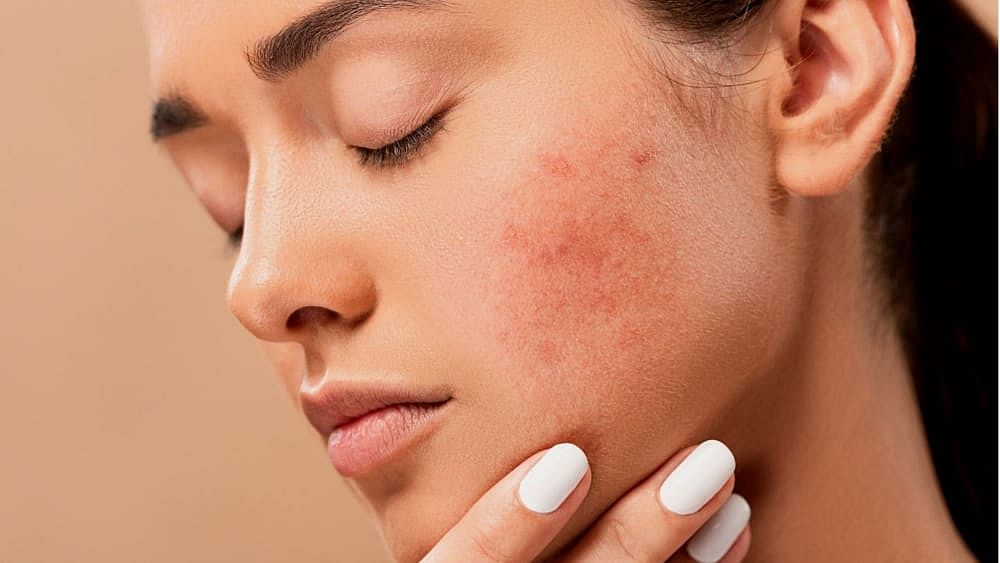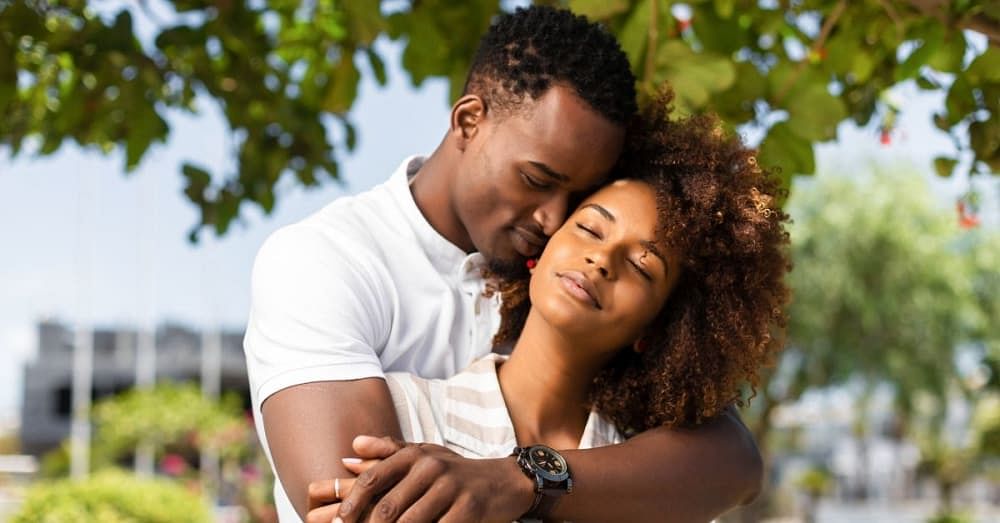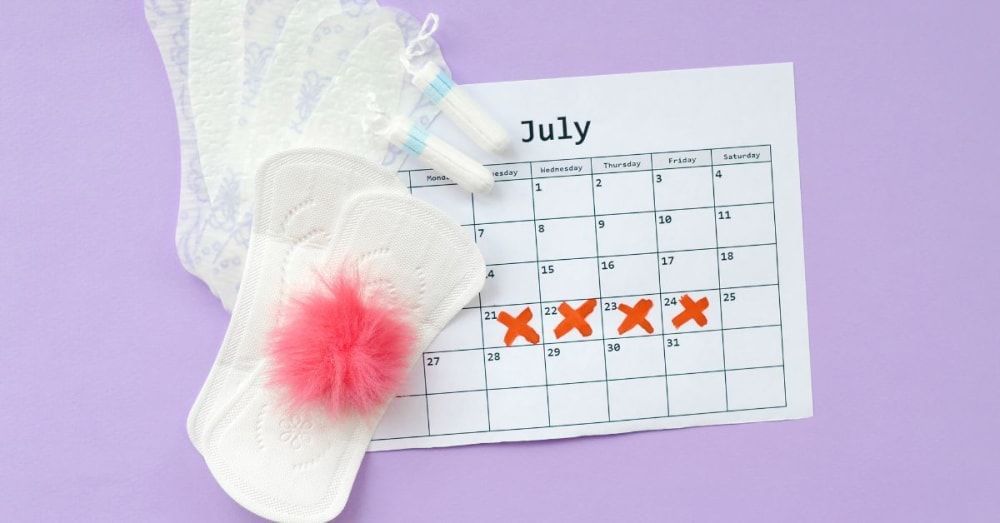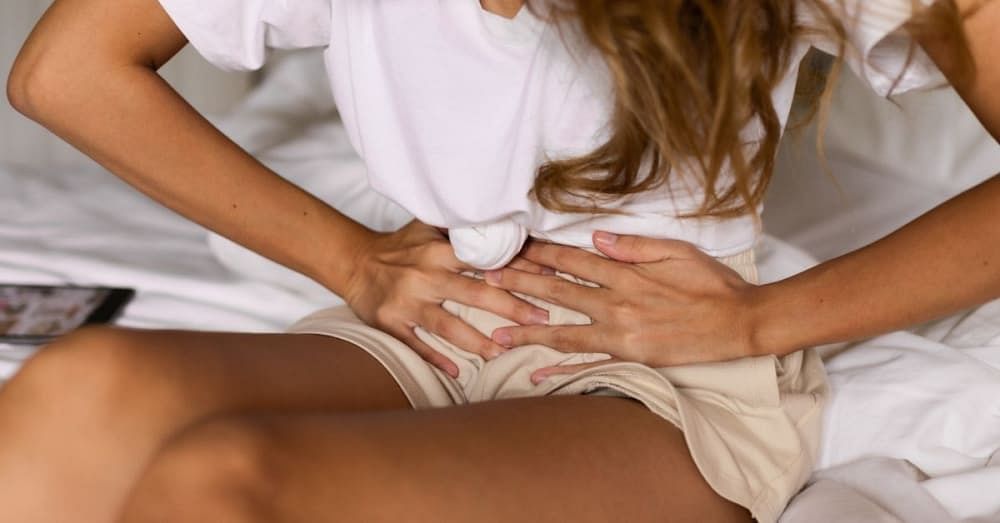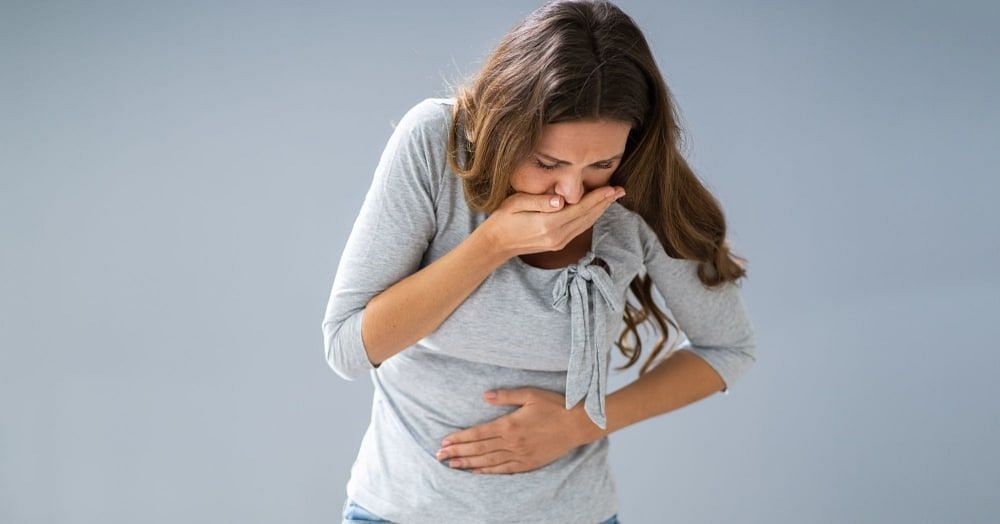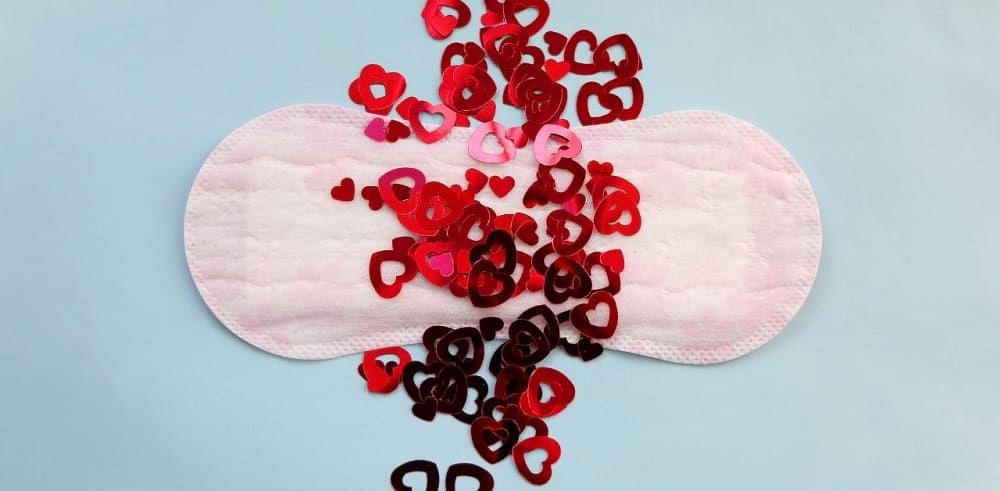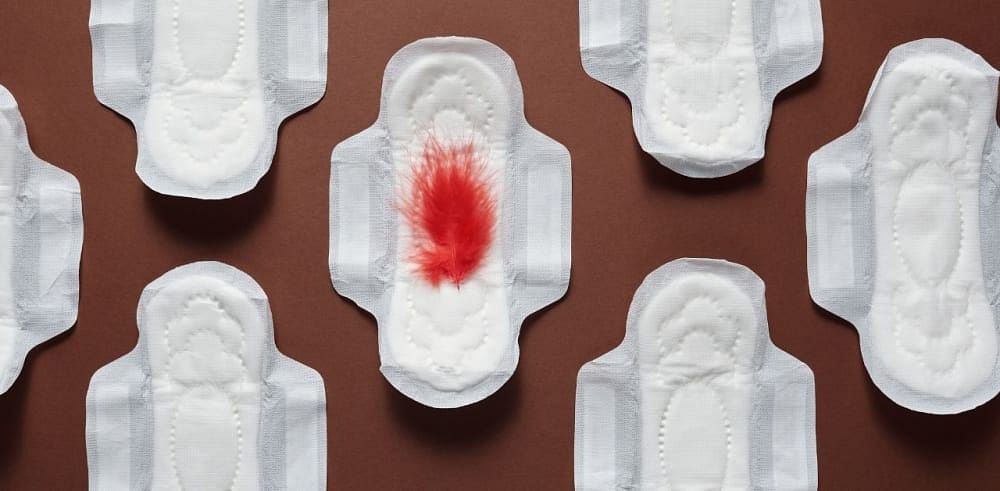Pimples! Do they scare you? You don't need to be. The five days of every month are your cue to acknowledge their presence. The period cycle may not be as disturbing as the period acne, which sneaks and settles in.
What is Period Acne and Pimples?
You must have asked yourself often, "why do I get acne during my period?" The hormonal changes during your menstrual cycle affect your skin type. As per studies, about 50% to 80% of women suffer from skin irregularities during their menses. These irregularities are Acne during periods. Period acne and pimples are common in women, either before or throughout the monthlies.
Difference Between Pimple and Acne
Pimples and Acne are common skin conditions in adolescence. Although PMS acne and pimples during menstruation are the same, there is a slight difference between them.
Acne is usually found in roughly textured skin and occurs due to clogged pores. These clogged pores trigger the sebum (an oily, with wax-like texture) production. Sebum is produced mainly due to the bacterial action on clogged pores.
Pimples are a type of Acne. The spots on the face during periods are more prominent on the chin. Their oily nature characterizes period zits, and they cause pain on touch.
What Types of Period Bumps Exist?
Acne's different types during menstruation are commonly noticed in women during the ovulation phase. The types of menstrual breakouts help in identifying the type of period bump.
Discussed below are types of pimples due to ovulation with their characteristics:
1. Papules is a Type of Pimple Caused Due to Ovulation
Papules form in the chin area and are small in size. They are pinkish and hurt a lot. Papule-type Acne during ovulation is the most common type.
2. Whiteheads are Caused Due to Ovulation
Whiteheads are the ugly-looking white pus-filled spots seen on the skin or beneath it. These period bumps form due to the dirt assimilated in the pores. This becomes a breeding spot for the bacteria growth, causing inflammation. Usually, these whiteheads accompany papules.
3. Cyst is Caused Due to Ovulation
As the name suggests, cysts are big, round breakouts filled with pus. Do not touch these pores or put pressure on them. A slight outburst of this cystic Acne during periods can cause permanent marks on your skin.
The Causes of Pimples and Acne during Periods
Your skin goes through a range of hormonal imbalances that causes skin dryness or oiliness. Testosterone, and Estrogen levels play a significant role in this. Lack of Progesterone rich foods in diet also affects hormonal balance. These hormone ratios' sudden highs and lows result in period-driven Acne and pimples.
How the Menstrual Cycle Influences Acne
The menstrual cycle lasts for 28 days, during which women experience several changes due to the change in hormone levels in their bodies. The first half of this cycle is mainly governed by estrogen, while the second half is influenced by progesterone.
Before the onset of the period, the level of these hormones drops. However, despite this drop, the testosterone level is higher than estrogen. Due to this, the sebaceous glands secrete sebum, an oily substance that acts as a natural lubricant for the skin.
As the levels rise gradually towards the onset of the menstrual cycle, more sebum is secreted and gets built up beneath the skin.
For some women, semen may bring a glow to the skin. However, for some, it results in the production of bacteria that causes the skin pores to choke and inflammation, resulting in acne breakouts.
Symptoms of Period Acne
Period acne is a bit different than typical ones that occur during the other phases of the cycle. Some of the symptoms that characterize period acne are listed below:
- Period acne occurs on the lower half of the face, i.e., chin, cheeks, jawline, and neck.
- Appearance-wise, period acne looks inflamed, with red raised bumps (papules) that rarely develop into pustules. (Pus-filled papules)
- The acne lesions, visible in the form of white/yellow spots, appear before the menstrual cycle and appear in hormone-dependent areas, like the chest, back and toward the lower half of the face.
The high level of testosterone in these areas causes the higher secretion of sebum, leading to blocked hair follicles. As a result, period acne occurs.
Is Menopausal Acne a Form of Hormonal Acne?
Menopause is a natural biological process and occurs when you’ve gone 12 months without a period. During this phase, the estrogen levels drop while testosterone levels stay consistent. At this phase, skin cell regeneration also decreases.
Due to this, hormone changes and the decline of cell reformation, many women experience clogged skin pores.
It causes sebum build-up beneath the skin, leading to menopausal acne. This acne type is usually seen in the hormone-dependent areas, i.e., the jawline, neck, back, cheeks, and chin.
Period Acne Treatment
For people suffering from mild acne problems, topical treatments are available as gels, solutions, and lotions. These are available either over the counter (OTC) or by prescription.
The OTC treatments consist of benzoyl peroxide or salicylic acid as their ingredients.
The treatment options available by prescription consists of various options that are listed below:
- Azelaic acid is known to kill bacteria and also reduce inflammation. Also, it is useful in reducing skin blemishes, post-acne marks and discolorations. It helps refine the skin tone and surface.
- Topical retinoids are made up of vitamin A and promote skin cell formation. As a result, it helps free up clogged pores and remove oils and sebum. Hence, it helps prevent blackheads and whiteheads.
- Antiseptic washes have benzoyl peroxide and mild salicylic acid preparations to unplug the blocked hair follicles.
- Topical and oral antibiotics help to kill bacteria and reduce inflammation and redness on the skin.
- A combination of the three variations of birth control pills that are a combination of estrogen and progesterone has been approved by FDA for treating acne.

How to Treat Period Acne and Pimples?
At present, dermatologists prefer topical retinoid medicine to get rid of period pimples. These medications include active ingredients like salicylic acid and benzoyl peroxide for a quick period acne remedy. Topical tretinoin is also an example of this type of medication available to treat period bumps.
Further, home remedies like Neem paste and Turmeric paste can sometimes work wonders for period pimples and Acne. So, know more about various home remedies for good skin and try addressing your skin problems at home today!
Also Read: Cinnamon Benefits during Periods
Tips on How to Prevent Acne Breakout Before Period
Below are a few tips to help prevent pimples during or before ovulation.
- Use non-comedogenic cosmetics and makeup materials, especially sunscreens to prevent pimples during or before ovulation. Moreover, it's important that you know which is the best sunscreen for you, based on your skin type!
- Wash your face often with lukewarm water to avoid pore-clogging to avoid acnes during or before ovulation.
- In order to prevent pimples during or before ovulation- avoid pinching any breakouts on the face or body.
- Do not touch your face with dirty hands as it helps in preventing pimples during or before ovulation.
- Maintain a healthy diet, avoid a high load of glycemia (glucose/sugar) also prevents pimples during or before ovulation. Furthermore, you can read about foods that induce periods and regularize your monthly periods with a healthy diet!
Also Read: Yoga for Period
Acne Before and After Periods
The pimples during ovulation are known as period zits. These are a result of premenstrual processes. Acne before period is visible in the form of spots. This is a sign of the period cycle. You may experience Acne 10 days before the period or Acne 2 weeks before the period.
The testosterone and estrogen levels generally increase after the tenth day of menses. These are the days when you will experience a lot of natural moisture on your skin. This stage is the follicular stage. Excess hormonal fluctuation can cause Acne on your skin during this time.
Also Read: Benefits of Dark Chocolate during Periods
Conclusion
The period complexities are quite a task already, and period zits only worsen them. Maintaining a correct diet and clean skin keeps the mid-cycle acne minimum risk.
Pamper yourself, avoid stress, and lead a hygienic and healthy lifestyle. This practice will go a long way to maintain a hormonal balance. However, if the Acne becomes too painful to deal with, see a dermatologist immediately.
FAQs
How to Prevent Acne Before Your Period Naturally?
The preventive measures that you should take to prevent acne before your period naturally include:
- Maintain good skin hygiene
- Avoid smoking
- Maintain a healthy weight
- Take enough vitamins
Do Periods Cause Pimples?
As per a study, around 63% of women who are acne-prone experience pimples before periods and during. It is due to excessive sebum collection beneath the skin, which for some women, results in acne.
What Does Period Acne Look Like?
Period acne breakouts are inflamed, red, raised bumps called papules, which seldom develop into pustules, i.e., pus-filled papules. These occur on the lower half of the face, neck, and back.

